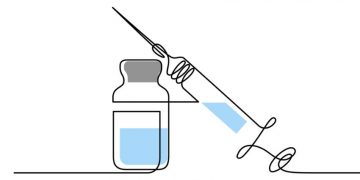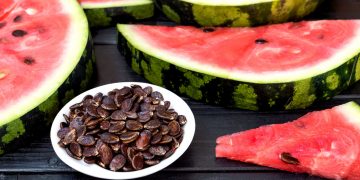Did you know that eating watermelon seeds may provide similar health benefits to Cenforce 100? These seeds hide a startling truth that might shock you. Watermelon seeds are among the best in terms of seed nutrients. Since seeds are edible, spitting out, removing, or discarding them lowers the fruit’s nutritional value. A quick and simple approach to pack a healthy snack for the road is to dry and roast nuts.
Consuming watermelon seeds have some advantages
Some of the highest nutritional density of any food is found in seeds. These meals are loaded with vitamins, proteins, omega 6 and 3 good fats, minerals (zinc, magnesium, copper, iron, potassium), and other nutrients. Remember that one cup of roasted fruit contains about 600 calories, so you should only eat a small amount of it.
There are several reasons why watermelon seeds are beneficial to health
Minerals present in watermelon seeds include folate, copper, zinc, iron, calcium (nearly 140% of our daily requirement per cup), and potassium. These seeds are a superior source of nutrition since they include proteins, vitamins B, amino acids, and other nutrients. Together, these nutrients speed up your body’s metabolism, improve the mineral density of your bones, and boost bone health.
Let’s look into any potential health benefits of watermelon seeds.
Watermelon seeds’ positive impact on skin health
A food that’s good for your skin is roasted watermelon seeds. It keeps your skin smooth and youthful-looking in addition to preventing acne outbreaks. These seeds help keep joints flexible when used frequently.
You can use watermelon seeds to get thicker, healthier hair
Healthy hair is maintained in part by vitamins, minerals, and amino acids. Protein promotes new development while magnesium shields hair from harm such as split ends and breaking. The production of melanin, which keeps hair’s natural lustre and shine, is encouraged by copper.
Watermelon seeds may benefit your heart in a number of ways
There are various cardiovascular health advantages of watermelon seeds. They are a great source of poly and monounsaturated fatty acids, which are good for the heart and have been shown in tests to do so. These seeds contain large amounts of magnesium, a mineral necessary for controlling blood pressure. The anti-inflammatory and antioxidant properties of seeds may play a role in their potential to support heart health. Zinc, which is abundant in watermelon seeds, is essential for maintaining a healthy heart because it regulates the calcium levels in the heart.
Reduce the detrimental effects of asthma by
Due to the high vitamin C concentration of the seeds, eating watermelon seeds may help asthmatics. This powerful antioxidant may help to lessen the intensity of asthma symptoms. To fully understand and investigate this, though, more research is necessary.
The key is moderation, even if seeds are good for your health. The watermelon should also be eaten whole, from stem to rind. You can then benefit from all of the health benefits that eating watermelon has to offer. If you are worried about your diet, speak to a reputable nutritionist in your region. The knowledge they impart might assist you in taking better care of your health by utilizing the healing qualities of food.
Use watermelon seeds to lower blood sugar
Eating seeds has been linked in studies to improved insulin and glucose control. Diabetics can control their blood sugar levels with the help of seeds. Consume these beneficial seeds to maintain normal blood sugar levels. Magnesium is included in watermelon seeds, which helps to break down carbohydrates and hence regulates blood sugar. Like Cenforce 200 Tablets, watermelon seeds can be used to treat erectile dysfunction.
Eating watermelon seeds may be beneficial for the immune system
It has been demonstrated that the iron and micronutrients found in watermelon seeds boost immunity.
Osteoporosis is prevented by watermelon seeds
People with osteoporosis have more fractures because their bones are brittle and their bone density is poor. It has been demonstrated that daily use of dried seeds can postpone the beginning of bone deterioration. One handful of these seeds may provide more than 140% of your daily needs for magnesium. Additionally, they are a good source of potassium, manganese, and copper. All of these nutrients improve the health and mineral density of the bones.
Seeds are a wonderful source of nutrients for the brain and nervous system.
Seeds contain significant levels of vitamin B complex, which is essential for supporting healthy nerves and brain function.

























